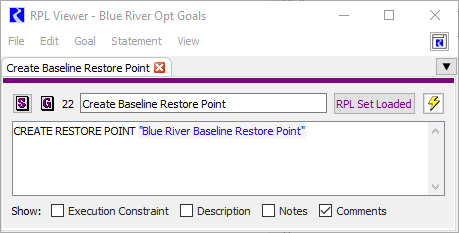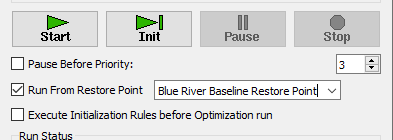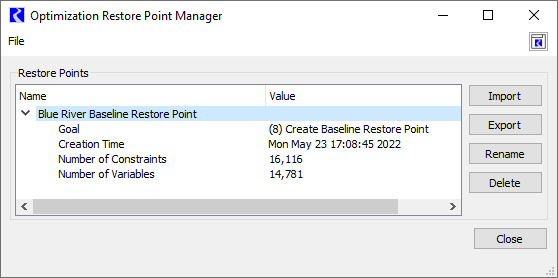Optimization
The following changes were made to Optimization.
Optimization Restore Points for Advanced Start
In some contexts it is useful to conduct a sequence of optimization runs, each of which involves an optimization policy whose initial portion is the same for each run. A Restore Point now allows RiverWare to perform the computations for the initial, shared portion of the policy once, save the state of the optimization problem after the last common goal, then use that saved state as an advanced start for subsequent runs in the sequence. Thus a Restore Point can be used to reduce the overall solution time for the sequence of runs.
A Restore Point is created by a new type of RPL statement in an optimization goal.

Use of a Restore Point in a subsequent optimization run, can be specified in the Run Control panel or in the Set Controller script action.

A Restore Point can be exported to a file by a new Export Optimization Restore Point script action or manually via the Optimization Restore Point Manager. A Restore Point file can then be imported with a new Import Optimization Restore Point script action or via the Optimization Restore Point Manager. This allows the Restore Point to be used in a separate RiverWare session with the same model or in distributed MRM (see Optimization Runs in MRM).
Figure 2.10 Screenshot of the new Optimization Restore Point Manager

For details on optimization advanced start with Restore Points, see Restore Point in Optimization.
Set Optimization Integer Parameters with a Script
A new script action, Set Optimization Integer Parameter, can automate the setting of optimization run parameters of type integer, such as the number of threads used by the optimization. See Set Optimization Integer Parameter.
Revised: 07/09/2023